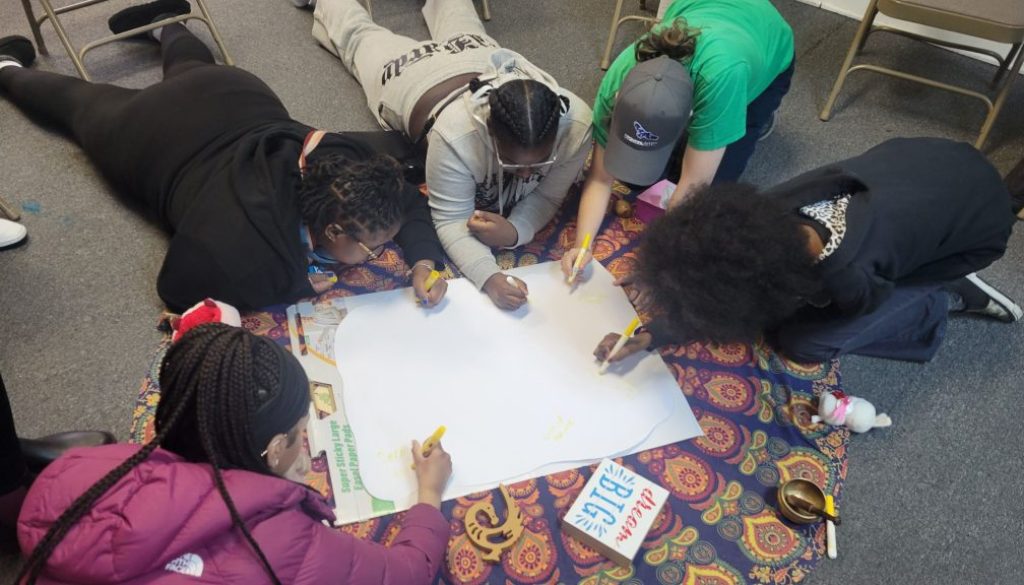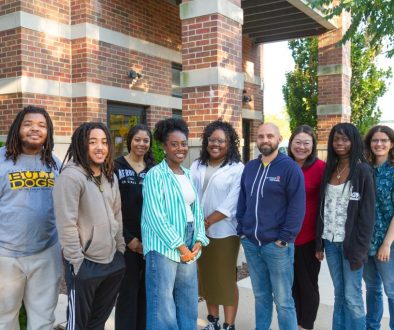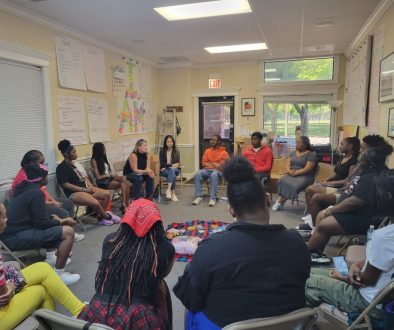Rest, Reflection, and Restorative Work in Bronzeville
I recently had the opportunity to take a sabbatical to intentionally lean into a time of rest and reflection. I had a loose plan for this time, but I found myself reading a lot more and allowing myself to process my lived experiences through non-fiction reads as well as activate my imagination through fiction reads. One book in particular played an important role during my sabbatical, titled Trauma Stewardship: An Everyday Guide to Caring for Self While Caring for Others.
In this book, there is a section that asks the question, is this [work/profession/job] working for me? It is both a practical and somewhat unusual question to ask of oneself. As the child of immigrant parents, I learned the importance of hard work and sometimes the need to just buckle down and get the work done. But this question disrupts automation, which I acknowledge is a privilege – to be able to ask this of myself and take time to think through.
Coincidentally, a variation of this question – the idea of impact – is something New Community Outreach as an organization is spending time this year to more formally unpack, analyze and hopefully arrive at discoveries to ensure that what we are doing is in fact “working”, or making an impact in the community as our mission sets out to do.
So this question posed to me felt right during my sabbatical, and I took time to unpack this question using scaffolds the book offers – what is the ideal benefit of this work for me and for those I serve? How does that compare to what is working for me or not?
The beauty of this exercise for me was the alignment between hopes and reality. I reflected on the ideal benefits for me: being part of something that is life-giving without it feeling life-taking and being fully present and presenting fully in the community I get to be part of through this work. And I crystallized the ideal benefits for our youth and neighbors as having increased experiences with things that are restorative (spaces, relationships, experiences), along with direct opportunities for healing and flourishing.
With the ideal benefits in mind, I spent concentrated time reflecting on what is happening at NCO, the stories we get to hear and the [feedback] data we gather. I wrote out the ways our programs and events are connected to our mission. And while I honestly assessed to what degree those ways are in or not in our best interest, I found deep gratitude in the alignment I not only felt but saw written out of how restorative practice is what we do as an organization and how we aim to live and be as humans within the organization.
I feel that in our grind culture, the person can get lost in the organization/ business/school amidst the calendar, the tasks, and the systemic pressure of success. Knowing the big and small ways my team and I are not lost as well as the ways we intentionally prioritize each person we get to be in community with, I am excited to move into the remainder of this year knowing that this is indeed working for me. And I look forward to sharing the ways the work we do is working for us as an organization committed to the Greater Bronzeville community.



